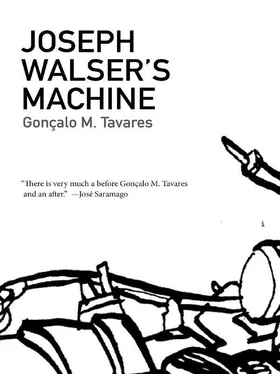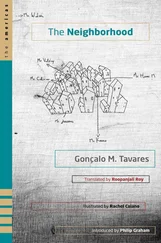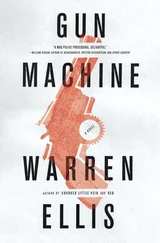“Look at this factory: we’re in the presence of a supernatural wonder. Everything is so stupidly predictable with these machines that it becomes surprising; it’s the great wonder of the century, the great surprise: we were able to achieve the exact thing that we wanted to happen. We’ve made the future redundant, and therein lies the danger.
“If individual happiness depends on these mechanisms and also becomes predictable, existence itself will, therefore, be redundant and unnecessary: there will be no expectations, struggles, or apprehensions.
“They speak of machines of war, but there is no such thing as a peaceful machine, Walser.”
Joseph Walser lived a disciplined life. He awoke at seven o’clock, shaved, and ate a quick breakfast. At eight thirty he entered the factory that belonged to the empire of Leo Vast, the most important businessman in the city, whom Joseph Walser, in ten years of employment, had only seen twice, and only from far away.
He ate lunch from one to two. At six in the evening he left the factory and returned home, on foot.
Margha Walser always greeted her husband with a peck on the cheek. They didn’t have any children, their days were quiet, and the discussions between them were respectful.
Margha was concerned about the way her husband dressed. It wasn’t just the shoes; his whole wardrobe was ancient, unfashionable, disheveled. They weren’t excessively poor; Joseph couldn’t afford to buy expensive clothes, to be sure, but it was clear that his slovenliness wasn’t due to any mere financial constraint.
Joseph Walser was a strange man, and he seldom spoke. The carelessness in his manner of dress was nothing more than the reflection of his carelessness in relation to the outside world. He listened much more than he spoke, even with his wife; however, the way he listened sometimes irritated his interlocutor:
“My dear Joseph Walser, are you really listening to me?” was asked of him countless times.
Walser’s face bespoke a constant, general state of alienation. As though his life was unfolding internally, not in the world around him. As though Walser’s days were much more complicated inside his head, and this internal existence required greater attention than his concrete, external tasks.
There was only one situation in which he felt completely given over to the world outside: when he was operating “his” machine in the factory. This intense concentration wasn’t, however, a personal choice, but rather something inherent to the danger of this machine: any distraction could cause an accident with serious consequences.
There had already been a number of accidents among his colleagues. One of them fatal. Everyone agreed that it was a terrible risk, that a number of relatively implausible probabilities had all been combined, such that the improbable was no longer improbable, and a few years back had become fact: the type of machine that Joseph Walser operated had caused a death.
Thus, it required of him an unceasing attention. A precise attention, as Klober always put it, stressing the strangeness of combining such a vast and unknowable word like “attention” with a firm and wholly unequivocal word like “precision.” Precise attention was essential in the person operating this machine. Attention defined as an emotional characteristic, rather than simply a bodily or manual one, said Klober, adding in the operative word: precision. A rational word, from the world of the sciences.
In front of that machine, it wasn’t enough to be attentive the way any given animal is generally attentive; it was necessary to be attentive in a precise manner, in a manner of which only humans are capable. Precision, said Klober, is a word that only exists and makes sense when it is used with regard to humans. No other creature has science, or gives it any importance.
The term “precise attention” summed up what was necessary in Joseph Walser’s job: to be a perfect animal, an unpredictable and non-animalistic animal, an organism without instability, an organism able to maintain a consistent, immutable identity in front of the machine. For that machine required of every one of the workers a set of fixed, repeated movements, performed in a predetermined sequence. Any deviation from these precise movements, these movements that were the product of precise attention, any deviation at all would result in a disruption of the machine’s efficiency and, therefore, a smaller output — or even a breakdown.
Walser had long since operated the machine with an unceasing concentration, since, from the beginning, he’d realized the following: if the machine could, in the worst case, as a result of a mistake, kill him, him the honorable citizen Joseph Walser, in peacetime, this most tranquil of times, while lazy children played in the parks on Sundays, then he, Joseph Walser, was, after all, at war, for he was dealing with a dangerous friend, a friend that was potentially an enemy, a mortal enemy, because it could — not in a few months or a couple of days, but in a second — turn into that which seeks to inflict bodily harm . The foundation of his very existence — this machine — which supported his family and was, therefore, what saved him, day after day, from being some other person, eventually his own negative, the opposite of the Man that he thought himself to be; this machine saved him, perhaps, from the fate of becoming a bum, or someone who nurtures a categorical hatred for his fellow man; but in saving him day after day, the machine also constantly threatened him, without abeyance. A mistake with the machine that saved him so monotonously could, from one moment to the next, put an end to his life, or at least to the interrelation between his body and his life.
Thus, Joseph Walser was constantly face-to-face with an enemy. But by being proficient and by maintaining his precise attention at every moment, Joseph was able, day after day, year after year, to keep this enemy at enough of a distance that he ended up considering it a friend.
Joseph Walser loved his machine, but he knew that his machine hated him, the human, so much that it never let him out of its sight; the machine was watching him constantly, looking for a mistake, hoping for a mistake.
In fact, Joseph Walser could feel that the machine, his machine, was watching him. The hierarchical relationship between these two entities was clear to him: the machine belonged to a superior tier: it could save him or destroy him; it could make it so that his life went on repeating itself, almost infinitely, or it could, on the other hand, from one moment to the next, produce a sudden change. Joseph Walser never understood his role as employee and his subservient role with regard to the outside world better than when he was face-to-face with his machine, in the full performance of his duties. The subservience that could be discerned in Walser when talking with Klober, the foreman, was absolutely insignificant compared to the subservience he displayed while at work, leaning against his machine, hugging it or battling against it (depending on the point of view). The outside world never dominated him so completely, and his energy was never so entirely directed outward, as they were in this situation.
He had heard this complaint from his wife, from the foreman, and even from people higher up in the hierarchy, but he never allowed, or — better said — never succumbed to the error, the dangerous error, of inattention and carelessness in front of his machine; he couldn’t let “his” machine ever ask him, as the others had: “My dear Joseph Walser, are you really listening to me?”
Given the nature of his work and the dangerous machine with which he contended, Joseph Walser didn’t need any additional intensity in his life. He viewed the start of the war and the invasion of the city as almost dull. He didn’t perceive the beginning of hostilities as a novelty, but just one more repetition. The sensation of continuity through time was, in fact, indestructible for Walser, in spite of the commotion in the sky, which heralded the arrival of new airborne machines and animosities. Peacetime flows seamlessly into wartime and the new wartime will later flow seamlessly into a new peacetime. And nothing is interrupted. Nothing fundamental. A person isn’t interrupted by war, there are no interruptions at all: he is always Man, there’s no one else, there’s no 2nd Man, there’s only one, the 1st, and he’s the one — the same one from centuries earlier, and he’ll be the same one in the future — the one who lives through everything in a state of boredom, even through war. Monotony and indifference.
Читать дальше












